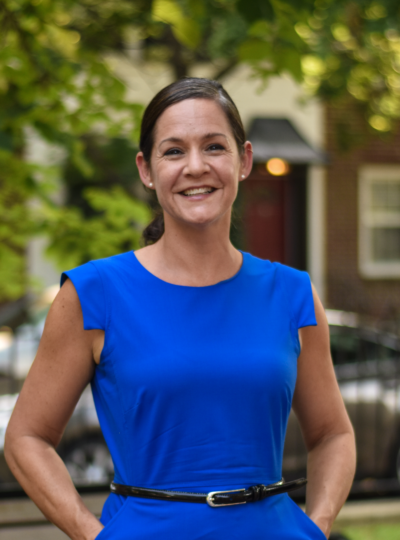People

Heather Klusaritz, PhD, MSW
Heather Klusaritz, PhD, MSW
Director of Community Engagement, Penn Center for Public Health Initiatives
Community Engagement Chair, Penn Medicine Center for Health Equity Advancement
Associate Director, Center for Community & Population Health, Department of Family Medicine &
Community Health
Heather Klusaritz, PhD, MSW is the Director of Community Engagement for the Penn Center for Public Health Initiatives and the Associate Director of the Center for Community and Population Health in the Department of Family Medicine and Community Health, Perelman School of Medicine. Dr. Klusaritz holds faculty appointments in the Department of Family Medicine and Community Health, the Masters of Public Health program, and the School of Social Policy and Practice at the University of Pennsylvania. Dr. Klusaritz has worked clinically as a member of interdisciplinary care teams treating vulnerable populations at the Penn Medicine for almost 20 years. Her research interests focus on access to health care for marginalized populations and the design of health systems to eliminate disparities in health access and outcomes. Currently, Dr. Klusaritz co-directs the HRSA-funded National Center for Integrated Behavioral Health that aims to generate best practices of scalable inter-professional integrated behavioral health training in primary care, and is a Co-Investigator of a Community Medicine Leadership Fellowship within a geographic care network of primary care provider champions and educators who share complex and high utilizing patients. Dr. Klusaritz has done extensive work on patient-centered medical home and played important roles in practice transformation including screening for and addressing social determinants of health. Dr. Klusaritz works collaboratively with multiple community partners throughout West Philadelphia to improve the health of underserved communities and is the co-founder of a program that connects patients to critical social welfare benefits, helps navigate health system access, and engages in medical-legal advocacy.
